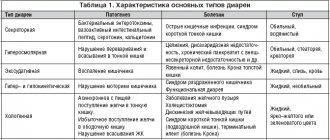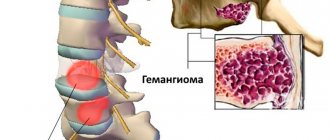Physiological reasons
The most unpleasant thing is that prolonged nausea almost never brings relief, just like sudden nausea, which ends in vomiting.
On the contrary, it exhausts the body, interferes with falling asleep quickly and reduces the quality of sleep itself. Especially if it is accompanied by other unpleasant symptoms: dizziness, weakness, abdominal pain, etc. In most cases, evening nausea is not associated with any disease. It is provoked by incorrect behavior or purely external reasons, which are quite easy to detect and correct. This may be polluted or gassed air (and in the evening, smog and dust settle down, poisoning a person even more), the presence of irritating substances in the bedroom: household chemicals, strong-smelling perfumes, tobacco smoke.
The most common cause is severe stress or physical fatigue. They often lead to increased blood pressure. Severe hypertension provokes nausea, darkening or sparkling in the eyes, weakness, dizziness, and possible loss of orientation.
Experienced hypertensive patients often feel sick in the evenings. Therefore, if you have a tendency to increase blood pressure, it is better to have a tonometer on hand and monitor its readings in the evening.
Nausea before bed and after heavy overeating, especially if the menu included a lot of fatty and fried foods. The body simply cannot cope with the increased load at night, when the whole body, including the digestive system, is set to rest, so it tries to provoke vomiting and get rid of unnecessary amounts of food.
I often feel sick at night after drinking too much alcohol, which is essentially a poison for the body. A person can neutralize a small amount of alcohol with the help of enzymes secreted by the liver. But even in this case, she has a hard time.
When there are too many toxins in the blood, radical remedies such as nausea and vomiting are used.
Caused by physiological causes, nausea at bedtime may appear irregularly or be constant with prolonged exposure to negative external or internal factors. But it disappears almost immediately after they are eliminated. This is what allows us to judge the absence or presence of pathologies.
When should you see a doctor if you have nausea?
Contact your doctor if episodes of nausea recur; there is a suspicion that the symptom is associated with the consumption of low-quality products; nausea accompanied by vomiting for 24 hours (children) and more than 48 hours (adults); nausea and vomiting are accompanied by severe abdominal pain; signs of dehydration are observed (extreme thirst, dry mouth, crying without tears in infants, infrequent urination with the release of a small volume of urine, dark color change in urine, severe weakness).
Seek emergency medical help if you suddenly feel unwell, have severe chest pain that spreads to your arms, back, neck or jaw, or have difficulty breathing; meningeal symptoms are observed (severe headache, stiff neck); there is confusion; there is a noticeable admixture of blood in the vomit; rectal bleeding occurred; Nausea persists for a long time and is accompanied by unexplained weight loss.
Treatment for nausea depends on the cause. Thus, a balanced diet (excluding hot, spicy, fried and fatty foods) in small portions, eating a few hours before bedtime, and wearing loose clothing can help alleviate the condition of gastrointestinal diseases. Fresh air and cold drinks (water, cool tea with a small amount of mint or ginger) relieve nausea. In the early stages of pregnancy, crackers help well with morning sickness (you can eat them before breakfast without getting out of bed, with this approach, as a rule, the nausea goes away after a short time).
Pathological causes
But there are a number of serious diseases or disorders that can cause nausea at night and require mandatory medical supervision:
- Dysbiosis, intestinal colic or infections make the normal digestion process impossible. The remains of undigested food remain in the intestines, are absorbed from it back into the blood along with decomposition products and cause permanent poisoning of the body, to which it responds with nausea.
- Diseases of the liver and biliary tract: cholecystitis, biliary dyskinesia, cirrhosis, etc. Nausea in this case is present at any time of the day, it’s just more noticeable at night, especially if you eat fatty or fried foods before bed.
- AIDS, HIV, autoimmune diseases - greatly reduce the body's resistance to any type of infection. Accordingly, even opportunistic microflora can cause nausea as a symptom of general intoxication of the body.
- Stomach diseases: gastritis, ulcers, etc. They are also accompanied by pain in the upper abdomen. Nausea before bedtime occurs if a person goes to bed on an empty stomach or has seriously violated the diet that such patients have to adhere to until complete recovery.
- Oncological diseases. They cause a strong general deterioration in health, a sharp decrease in immunity and often give symptoms of general intoxication, since immune cells constantly attack cancer cells and die in an unsuccessful fight. In addition, radiation and chemotherapy are also toxic to the body and cause nausea, which is especially acute at night and before bed.
- Diseases and injuries of the brain. Even with a normal concussion, nausea, especially severe after physical exertion and before bed, can be present for quite a long time.
- Endocrine disorders. Hormones produced by the endocrine system regulate most vital processes, and if dissonance occurs, it immediately affects well-being, causing nausea, dizziness, increased sweating, panic attacks, etc.
- Appendicitis. In the acute form of the disease, nausea is accompanied by vomiting and severe abdominal pain. But chronic inflammation of the caecum just gives constant nausea and heaviness in the right side before going to bed.
- Taking medications. Some sleeping pills and antihypertensive drugs, which are mainly taken before bed, cause nausea as a side effect. The patient is usually warned about this in the instructions.
There are also purely female reasons why nausea may occur before bed - pregnancy or premenstrual syndrome. During pregnancy, toxicosis often occurs in the early stages, when the blood of the mother and fetus is not yet separated by the placenta.
Usually pregnant women feel sick in the morning, but some suffer especially severely just at the onset of relaxation - before falling asleep, but here everything is individual.
Before menstruation, the hormonal background changes quite sharply - it is this jump that provokes the onset of menstruation. However, it also causes such unpleasant sensations as dizziness, nausea, spasmodic pain, changes in blood pressure, and sometimes fainting. During the day, a woman is busy with her own affairs and does not pay much attention to her well-being, if it is satisfactory. But at rest, nausea and pain become more noticeable.
Symptoms of cervical osteochondrosis: all about nausea
Spinal osteochondrosis is a complex pathology that affects intervertebral cartilage. All parts of the spinal column without exception can be affected by this disease, but the neck is especially vulnerable.
One of the distinguishing features of the disease is the difficulty of diagnosis. This fact is explained by the fact that the list of symptoms is too long, which means that the likelihood of an incorrect diagnosis increases. Sometimes patients feel nauseous and suffer from dizziness. This is a reason to take a closer look at nausea as one of the symptoms of cervical osteochondrosis.
Reasons for appearance
Nausea with back problems can occur due to:
- Tissue damage resulting from trauma;
- Vitamin deficiency and lack of microelements;
- Long-term static loads;
- Connective tissue dysplasia;
- Constant tension in the neck area.
All of the above leads to the development of cervical osteochondrosis, one of the symptoms of which is nausea caused by impaired blood flow in the brain. Often this symptom manifests itself in other diseases.
More information about the development of the disease
Deformation of the vertebrae leads to the fact that the capacity of the intervertebral space is reduced, and it itself shifts. If the position is incorrect, the spinal cord and the vessels leading to it are pinched. As a result, the rate of blood flow to this area decreases, which leads to oxygen starvation of the spinal cord and brain.
Scientists have not yet figured out the true cause of nausea in cervical osteochondrosis. However, there is an opinion that when blood circulation deteriorates, the cerebellum, which is responsible for balance, is the first to suffer. The patient experiences difficulty with orientation, which feels similar to motion sickness while driving a vehicle. In addition, there are theories according to which nausea indicates dysfunction of the organ of Corti and/or diseases of the digestive system.
How to get rid of nausea?
If you have a diseased spine and you periodically experience bouts of nausea, then taking certain medications will help. First, you need to normalize the functioning of blood vessels, which will improve blood circulation. In this case, the use of Trental, Vinpocetine or Thiotriazoline is required, which will have a positive effect on the microcirculation process. If you want to ensure reliable protection of the brain from hypoxia, then give preference to nootropics, for example, Phenibut or Piracetam. Taking medications based on B vitamins, such as Combilipen or Neurovitan, will also be beneficial.
Sometimes, by visiting a doctor and complaining about nausea due to cervical osteochondrosis, you can get a prescription for Nurofen or Nimesulide. These drugs are of non-steroidal origin and can provide an anti-inflammatory effect, but are prescribed only in cases where the patient does not suffer from gastritis, gastric ulcers or ulcers in the duodenum.
If a patient with osteochondrosis requires emergency assistance, then taking Osetron, Cerucal and Metoclopramide will prevent vomiting.
Therapeutic therapy includes the prevention of connective tissue destruction. It involves injections of chondroprotective drugs, for example, Elbon, Sustik or Don. In addition, taking vitamin D and calcium can have a positive effect on the condition of the affected vertebrae.
Speaking about the prevention of nausea, it should be mentioned that there are special exercises that can strengthen the muscles located near damaged areas of the spine.
Regular swimming lessons will bring benefits, as well as taking courses of healing massage at intervals of approximately 1 time for 6 months. Author: K.M.N., Academician of the Russian Academy of Medical Sciences M.A. Bobyr
Symptoms of PA
The causes of panic attacks are not exactly known. Doctors note that in 15% of cases the disorder is based on heredity. An attack can be triggered by psychogenic, biological, physiogenic factors - from troubles at work to alcohol or coffee abuse. In other words, this disorder is a reaction of the body and psyche to stress or exceeding our capabilities.
You can talk about a panic attack if you experience four or more of the following symptoms before falling asleep:
- cardiopalmus;
- sweating;
- chills, internal trembling, hot-cold;
- feeling of lack of air;
- discomfort in the left side of the chest;
- dizziness, lightheadedness;
- fear of death or fear of going crazy;
- numbness of limbs, convulsions.
Night attacks occur suddenly, often from 12 am to 4 am, reaching a peak within 10 minutes. The duration of panic is 15-30 minutes, after which the person experiences weakness, weakness, or, conversely, relief. The more severely he suffered the first attack, the more difficult it is for him to fight it further.








